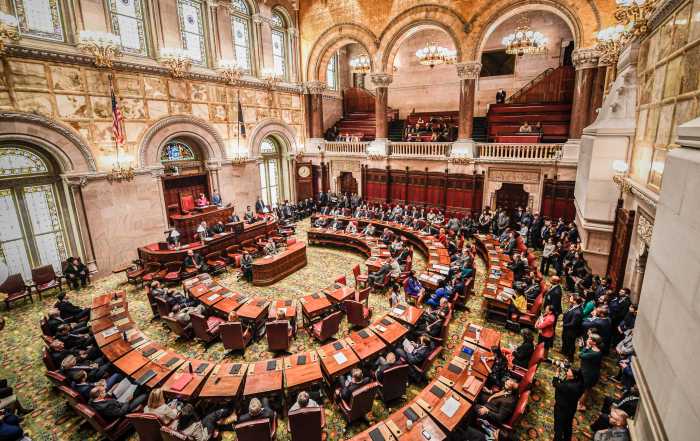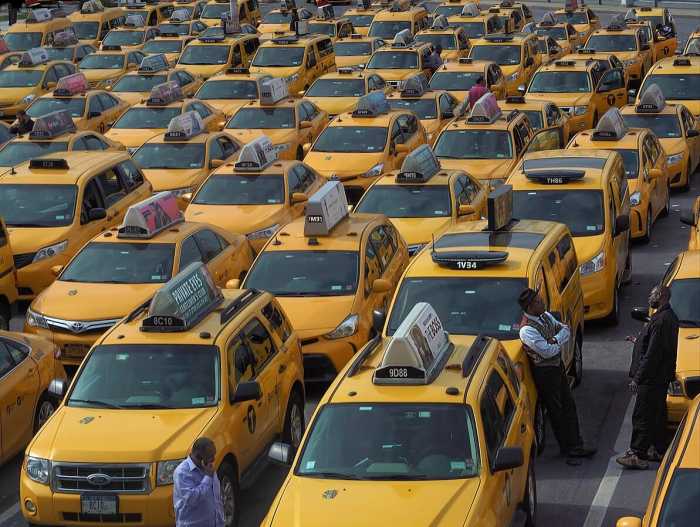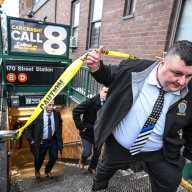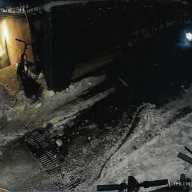Recently, every few weeks or so, I’ve spent some weekend time wandering in a haphazard way around Prospect Park. Multiple amazing things about this practice include that I haven’t gotten bored, lost or mugged. These are reasons alone to give thanks for Brooklyn’s flagship public space. Also, it finally feels like spring. Even the Instagram account of Sen. Chuck Schumer, who presumably has other issues on his mind but lives in Park Slope, features #prospectpark pics of flowers blooming.
On a recent Prospect Park visit, as per design, I didn’t have a fixed destination. I took a meadow route to watch a couple do impressive frisbee tricks. In a woodland section, I walked down a dirt path around some rocks where a guy sat silently, eyes closed, looking very peaceful. I went one way toward a chainlink fence because it seemed right, avoiding a narrower dirt path for the opposite reason.
Those random choices were sometimes rewarded by where they led — past two elderly women taking pictures of red birds on expertly wielded cellphones; next to a family indulging a toddler by pouring sand onto a tree stump; around a stretch of trees that opened onto a little pond I’d never seen.
Sometimes the reward was being able to do all this wandering surrounded by nature, or as close to a natural setting as you can access off the F train. Certainly, this is how the park’s designers envisioned their creation: an 1869 report from Olmsted, Vaux and Co. to the Brooklyn Park Commission praises park views that are “free from any object which will suggest the vicinity of the city, from which it is the primary purpose of the Park to give the means of a ready escape.”
The park was supposed to be big enough to allow thousands of visitors to enjoy a variety of landscapes, “to induce a sense of freedom and a disposition to ramble,” another report to the commission says — essentially the right to get lost.
It’s just as nice to be submerged in the woods today during the cellphone age as it was just after the industrial revolution. But I’m probably not alone among proud urban partisans who still also appreciate a little proximity to human beings, even while exploring nature. Wandering is fine and sanctioned because honestly you’re not going to need the forest service sent in after you. The only animals are tame-ish ones and you’d be hard-pressed to find a snake outside the zoo. And the peaceful picture of fellow New Yorkers enjoying the park can be as relaxing and thought-provoking as my uninformed musings on the local treescape.
One random turn pulled me out into the open baseball fields off Prospect Park West where a little kid was hitting baseballs into a fence protecting a dugout full of players. The kid got closer and closer to hitting his ball over the fence right into the game, and watching him mischievously try to do so was grade A entertainment for a couple minutes at least.
There is something to be said even for the trash that humans leave behind: the Corona bottlecaps and condom wrappers in dense thickets telling a story of couples less hidden than they think they are. The park has charted full histories of human happiness and suffering, even violence, no matter how natural and peaceful its creators wanted the expanse to appear. Last month, a new tragedy took place within its borders, when the civil rights attorney David Buckel set himself on fire and died, protesting humanity’s effect on the environment.
It was a shocking event along a well-traveled stretch of green. Maybe the park and those who love it needed to mark the ground somehow: since then, a memorial has grown. Flowers now almost entirely cover the small grassless western patch.
A further memorial: the fact that next to the flowers, Brooklyn life continues. While I walked past the spot, a loud noise drew stares from joggers and bikers: it was a family playing with woven yellow whips that made impressive cracks if you knew how to snap them right. The whips came from the family’s homeland in Puebla, Mexico. Children tiring of the whips watched instead as their peers tried to launch a Spider-Man kite. Others worked together to build a teepee of small sticks, shouting “stranger” jokingly whenever someone walked by. But there was no danger, no real danger, here.





































